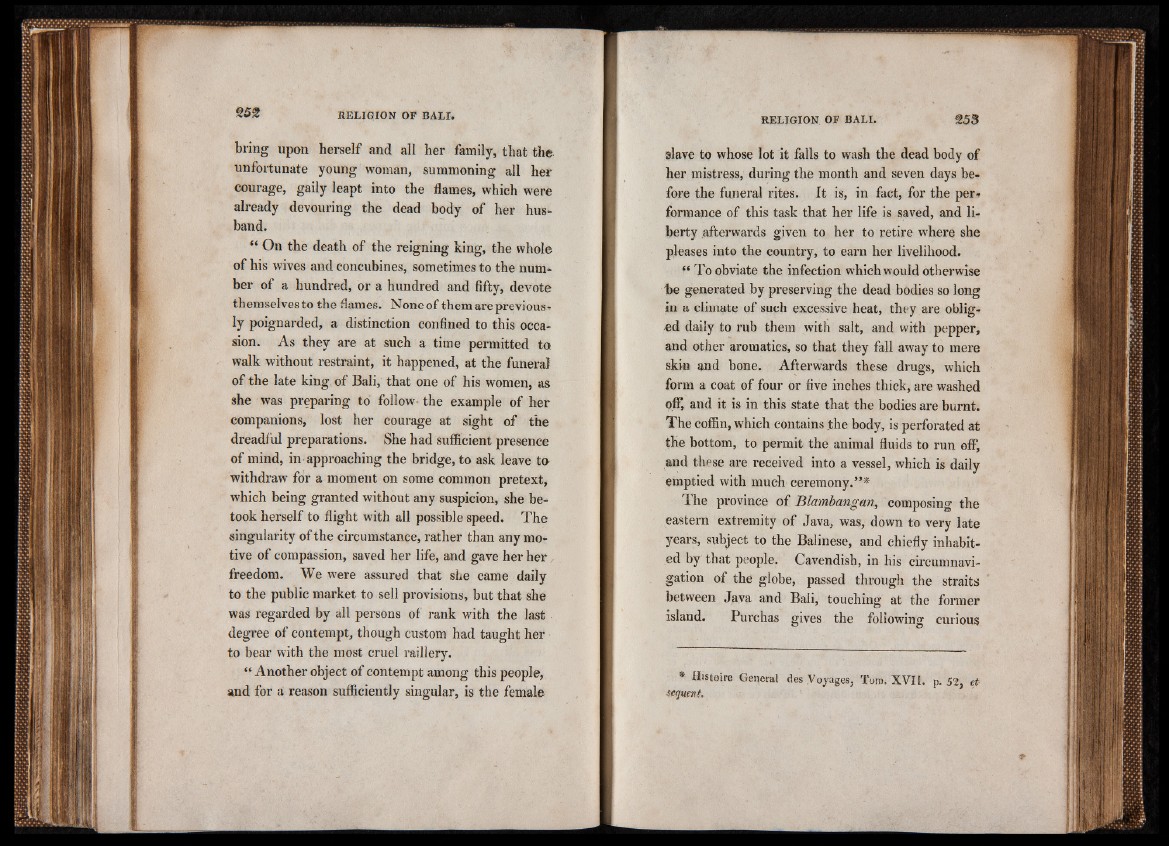
bring upon herself and all her family, that the
unfortunate young woman, summoning all her
courage, gaily leapt into the flames, which were
already devouring the dead body of her husband.
“ On the death of the reigning king, the whole
of his wives and concubines, sometimes to the number
of a hundred, or a hundred and fifty, devote
themselves to the flames. None of them are previous ly
poignarded, a distinction confined to this occasion.
As they are at such a time permitted to
walk without restraint, it happened, at the funeral
of the late king, of Bali, that one of his women, as
she was preparing to follow- the example of her
companions, lost her courage at sight of the
dreadful preparations. She had sufficient presence
of mind, in approaching the bridge, to ask leave to
withdraw for a moment on some common pretext,
which being granted without any suspicion, she betook
herself to flight with all possible speed. The
singularity of the circumstance, rather than any motive
of compassion, saved her life, and gave her her,
freedom. We were assured that she came daily
to the public market to sell provisions, but that she
was regarded by all persons of rank with the last
degree of contempt, though custom had taught her
to bear with the most cruel raillery.
“ Another object of contempt among this people,
and for a reason sufficiently singular, is the female
slave to whose lot it falls to wash the dead body of
her mistress, during the month and seven days before
the funeral rites. It is, in fact, for the performance
of this task that her life is saved, and liberty
afterwards given to her to retire where she
pleases into the country, to earn her livelihood.
“ To obviate the infection which would otherwise
be generated by preserving the dead bodies so long
in a climate of such excessive heat, they are obliged
daily to rub them with salt, and with pepper,
and other aromatics, so that they fall away to mere
skin and bone. Afterwards these drugs, which
form a coat of four or five inches thick, are washed
off, and it is in this state that the bodies are burnt.
The coffin, which contains the body, is perforated at
the bottom, to permit the animal fluids to run off,
and these are received into a vessel, which is daily
emptied with much ceremony.”*
The province of Blambangan, composing the
eastern extremity of Java, was, down to very late
years, subject to the Balinese, and chiefly inhabited
by that people. Cavendish, in his circumnavigation
of the globe, passed through the straits
between Java and Bali, touching at the former
island. Purehas gives the foliowing curious
* Histoire General des .Voyages, Toro. XVII, p. 52, et
sequent.